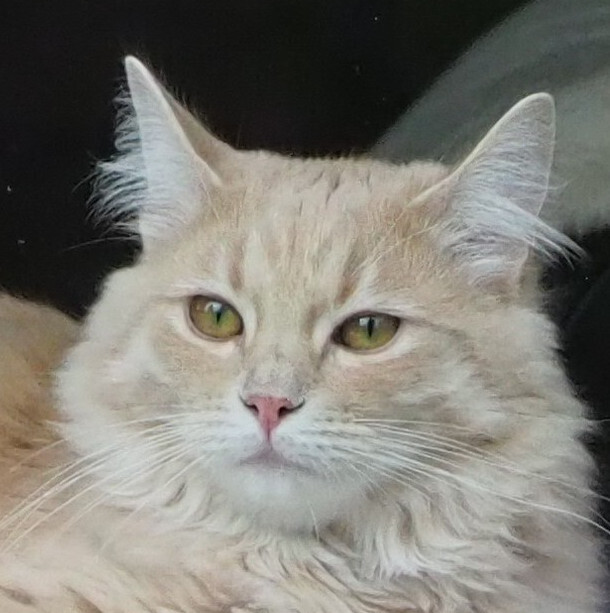WHERE TO GET THE BOOK: http://libgen.is/book/index.php?md5=F6B31A8DAFD6BD39A5986833E66293E6
PRIOR THREADS:
So, it’s been a minute. Apologies. Life has been overwhelming me lately. School, work, more failed attempts at dating, etc. Please be patient, I have autism (probably) 
I was also reading Devon Price’s new book, Unlearning Shame. Definitely recommend. He dismantles shame as a social construct of behavioral reinforcement and the undergirding of the lie that is rugged individualism, and prescribes the cure of building community and understanding social interconnectedness on a deep level. Made me re-examine just how much shame is woven into the fabric of the way I conduct myself and hoo boy it’s a lot. I blame my Catholic upbringing.
Anyway, I figured before I dive back into the next chapter it’d be nice to get caught up and see where everyone is at. Share your thoughts here, ask questions, get caught up. I want to make a new post next week but first I have to write an informative speech and then an essay about some story or another
Let’s cut down on the decision paralysis with some discussion questions:
- What’s new with you, neurodiversity-wise, since the last thread?
- Any points of contention, confusion, or questions from prior chapters?
- Post any thoughts specific to the last chapters that you didn’t get to share before.
Tag post to follow.
Since we last met I’ve read Looking After Your Autistic Self, by Niamh Garvey (libgen). This was very helpful - I recommend it for anyone with sensory sensitivities or similar struggles with daily living. It doesn’t cover social issues as much, if that’s your top priority, but since I’m trying to unravel the relationship between my Autism and my migraines it’s going to be a go-to reference book for me.
Does it help with people that have misophonia as well?
(That is, when the sound gets so intense that it literally hurts you?)
For misophonia, especially if you’re late-diagnosed or undiagnosed, it’s important to keep in mind that you probably have been taught to ignore your sensory sensitivity and to suppress it as much as possible.
What this means is that you’re likely pushing yourself in terms of idk, I guess what I’d call your “sensory load”, before it even hits the point where it’s physically painful for you. Think of it in terms of music being too loud for a person but not to the point where it actively hurts them - this is still going to cause a person to become overwhelmed, distressed, exhausted, and to struggle with focus etc. This Is likely going to have a significant impact on your overall wellbeing as well as your experience of executive dysfunction and burnout etc.
When it comes to considering your sensory diet there are a few different strategies managing it, no matter what your sensitivity happens to be:
- Avoidance
This term isn’t a value-judgment btw. Avoidance is what people engage in when they don’t go outside in the peak of the Texas summer because it’s too hot - that’s not a negative thing, it’s just plain good sense.
Avoidance can mean scheduling things outside of peak hour for traffic or business. It can mean shopping during quiet hours or instead shopping online where possible. It can also mean removing yourself from an environment when you notice that you’re near your limit or moving away from the source of the sound.
- Mitigation
This is where you mostly have adaptive devices.
In my (admittedly limited) experience, over-ear noise cancelling headphones are more effective than in-ear ones.
There are also noise-filtering devices like Hearos, Loop, and Flare Calmer. If you regularly experience pain from the day-to-day soundscape then I’d lean more towards Hearos or Loop over Flare except in situations where it’s a particular pitch which affects you rather than the overall spectrum of noise when it’s at significant volume as Flare tends to attenuate and filter some frequencies whereas Hearos and Loop are designed to do more in the way of overall volume reduction.
There are also cheap knockoffs on AliExpress and similar sites as well as other lesser-known brands that are typically marketed to musicians and festival-goers which reduce volume while maintaining a reasonable level of fidelity.
For home use, if you don’t give a fuck about what allistic people think, or if you are so sensitive that it’s disabling then I’d recommend considering ear defenders (i.e. industrial ear protection). If you have tinnitus note that this may not be a good option or it may only be suitable in certain situations. As a strategy to reduce your overall sensory load, you might find spending some time wearing ear defenders at home at the end of your day helps you to decompress and refresh.
Earplugs are cheap and cheerful - they’ll definitely help but they muffle sound so you lose most of the fidelity. Good if you’re on a budget, if you want to carry a backup in your bag, or you want a lot of sound reduction but you want something more discreet than ear defenders for wearing in public.
- “Crowding out”
Idk what the actual psychological term for this is, if there even is one, but our nervous systems are only capable of receiving a certain amount of sensory input and this means we can kinda countersignal sensory input with other sensory input to crowd it out. (Someone with a degree help a comrade out, please!)
This probably seems abstract but in the simplest terms it’s something that is instinctive to people because even kids will do this when they are hurt - when someone injures themselves they will put pressure or lightly rub the area that is in pain.
In terms of auditory sensory sensitivity, the two examples I can think of are plugging your ears and humming or using headphones and playing sound through them fairly loudly.
Exactly what noise is going to be a question of what is most tolerable to you but you might be noise music, hardcore techno, doom metal, one of those ambient heavy rain tracks, or something else. Often the best place to start though is with is colour noise, with white noise being the most commonly known example but there are different frequency ranges associated with different colours.
Personally I find that white noise grates on my nerves pretty quickly and my favourite would have to be this particular track (disclaimer that you need decent speakers or headphones to get the value out of it because the loudspeaker on a mobile device isn’t going to cut it for the frequency ranges it hits), although that whole channel is a goldmine for different noise tracks so I’d encourage you to do your own exploration.
- Soothing
This dovetails into the point above because a lot of the stuff used to crowd out some sensory input is going to be soothing as well, although not always.
You can use your downtime to listen to sounds, tracks, or songs that you find particularly soothing as a way of decompressing and finding your centre after experiencing noxious auditory stimuli. This one likewise is quite personal and it may take some exploring before you find what hits the spot for you.
Last of all, it’s important to distinguish between what you find to be stimulating and what you find to be soothing. I know I’m conflating terms here so you’ll have to excuse me for that.
If we imagine a spectrum that runs from the things that we find most calming and soothing to the things that we find to be most stimulating or exciting, you’ll probably be able to identify what specific type of sensory input from the different categories (olfactory, gustatory, tactile, auditory, vestibular, proprioceptive and… idk I always miss one of them lol) you find pleasurable and then it should be pretty easy to determine whether that stimuli is more soothing or more stimulating from that point.
For example, you will probably find a range of auditory sensory stimuli to be pleasant but not all of it will be soothing so the rest are probably stimulating for you.
There’s a discussion to be had here about how if you readily identify more on one end of the spectrum vs the other then you’re likely to be considered sensory-avoidant or sensory-seeking for that particular sense. (For example, I am [legitimately tested btw] largely sensory-avoidant with the olfactory sense and largely sensory-seeking with the gustatory sense.) Maybe one day I’ll find the motivation to purchase the Adolescent/Adult Sensory Profile kit and “democratise” it, but that day is not today.
Anyway, I’ve rambled on for ages again. I’ll cut it off here. I hope that this helps give you some insight into how to better meet your sensory needs, especially with regards to auditory sensitivity. I should also mention that it’s worth considering reading Living Sensationally by Winnie Dunn - literally the Occupational Therapist who wrote the book on sensory profiles although that title is written for a lay audience so it doesn’t presume a level of pre-knowledge about like psychology or occupational therapy or anything.
Holy effort-post, Batman!
For misophonia, especially if you’re late-diagnosed or undiagnosed, it’s important to keep in mind that you probably have been taught to ignore your sensory sensitivity and to suppress it as much as possible.
Yeah, I’ve long suspected this, tbh. I think I have his “numbness” that I mistake for not feeling anything, but it’s definitely registering. Oh, it definitely is. Yeah, my misophonia was diagnosed late, unfortunately.
What this means is that you’re likely pushing yourself in terms of idk, I guess what I’d call your “sensory load”, before it even hits the point where it’s physically painful for you. Think of it in terms of music being too loud for a person but not to the point where it actively hurts them - this is still going to cause a person to become overwhelmed, distressed, exhausted, and to struggle with focus etc. This Is likely going to have a significant impact on your overall wellbeing as well as your experience of executive dysfunction and burnout etc.
I push myself too much, it’s true. I push through things and I think it’s hurting me. I don’t know when to stop, quite literally. Don’t know my own limits.
This term isn’t a value-judgment btw. Avoidance is what people engage in when they don’t go outside in the peak of the Texas summer because it’s too hot - that’s not a negative thing, it’s just plain good sense.
What do you mean by it not being a “value-judgment”?
In my (admittedly limited) experience, over-ear noise cancelling headphones are more effective than in-ear ones.
Already use them, though I can’t get them to charge and enhance their capabilities. I’ll make sure to get that fixed though…
They definitely do help, but I still feel the pain when it starts to happen…
There are also noise-filtering devices like Hearos, Loop, and Flare Calmer. If you regularly experience pain from the day-to-day soundscape then I’d lean more towards Hearos or Loop over Flare except in situations where it’s a particular pitch which affects you rather than the overall spectrum of noise when it’s at significant volume as Flare tends to attenuate and filter some frequencies whereas Hearos and Loop are designed to do more in the way of overall volume reduction.
I didn’t know about these, outside the noise-cancelling headphones. I’ll try them out. Thanks! And yeah, I can get them through Alibaba.com or AliExpress, I’m sure.
Earplugs are cheap and cheerful - they’ll definitely help but they muffle sound so you lose most of the fidelity. Good if you’re on a budget, if you want to carry a backup in your bag, or you want a lot of sound reduction but you want something more discreet than ear defenders for wearing in public.
Come to think of it, you can also pair 'em with noise-cancelling headphones. I’ll try it out!
Idk what the actual psychological term for this is, if there even is one, but our nervous systems are only capable of receiving a certain amount of sensory input and this means we can kinda countersignal sensory input with other sensory input to crowd it out. (Someone with a degree help a comrade out, please!)
I’ll study this a bit more, but I’ll try it out, and I think that I kinda know what it refers to in the end.
I put a star on your comment just in case I need to review it. Thanks!
I push myself too much, it’s true. I push through things and I think it’s hurting me. I don’t know when to stop, quite literally. Don’t know my own limits.
I need to make a post about autistic burnout one of these days…
I guess my advice to you would be to take inventory of how you deal with things, especially when you’re out of your room/the house.
One thing to consider is how overwhelmed you are.
Sensory overload, even if it’s not at the point where a meltdown or shutdown is imminent, can make it impossibly difficult to figure out how I’m feeling internally. If that resonates with your experience some of the time/a lot of the time then it’s going to be important to engage in strategies for better accommodating your sensory needs.
Being extremely anxious is another thing that makes it really difficult in a similar way because I’m emotionally/psychologically overwhelmed - similar experience, different cause.
The next thing to look at is how much masking you are engaging in.
Obviously masking takes on a lot of different aspects but one of the big indicators is whether you are suppressing stims a lot. If you are late diagnosed you it’s likely that you got trained out of a lot of your stimming behaviour at a young age, either through the conscious actions of adults around you or by your peers with bullying and ostracism, so just because you don’t feel the urge to stim doesn’t mean that you aren’t suppressing the urge to stim necessarily, it might just be an indication that you are so accustomed to suppressing your stims that it feels completely normal to you.
Another is how much people-pleasing you are engaging in.
People pleasing also takes on a lot of aspects and imo it’s not just when you are saying yes to people without considering whether it’s a good idea or being nice/friendly even when the situation doesn’t call for it or when you don’t feel like being that way.
For me, I’m fairly high in regards to social masking. What that means is when I’m around other people I am running heuristics in my mind constantly to try to understand what other people are communicating, what would be the best way for me to communicate what I’m trying to, and what is most appropriate in regards to things like etiquette and the expectations of reciprocity, and all of it feels like conscious effort because it doesn’t come naturally to me.
For example, I am reading the subtle cues that the others around me are giving such as facial expression, body language, tone, choice of words etc. I’m consciously timing how often I should break eye contact. I’m retrospectively going back over what was just said in case I might have said the wrong thing or implied something that I didn’t want to as well as trying to identify if there were any points that I am expected to inquire about or anything I’m supposed to reciprocate. And all the while I’m modulating my own choice of words, tone, body language, facial expressions etc. to try and best communicate what I’m trying to get across to others. I’m also assessing whether I’ve talked too much about something or if I’m boring others and stuff like that.
And that’s only the most obvious things that I’m doing when I’m in high masking mode. When a person is doing all of that consciously, is it any wonder that they don’t find a moment to stop and consider how they are feeling in the moment?
If I could liken my experience of high masking in a social sense, I’m like a skilled beginner or an intermediate at social interactions. You know when someone is learning to swim or ride a bike and they can do it, and often they do just fine, but it is kinda stiff and awkward and if they aren’t focusing on all of the things that they need to attend to then they start making mistakes? That’s how I feel when I’m socialising and meanwhile everyone around me seems to be experts who just socialise effortlessly (because a lot of the time it is actually pretty effortless for allistic people.)
To sum all of this up, if you are regularly pushing way beyond your limits and especially if you don’t even realise it until much later on, then you are at a high risk of autistic burnout and, believe me, it’s much harder to recover from autistic burnout than it is to develop ways to accommodate your sensory needs and to work on unmasking/reducing your level of masking.
What do you mean by it not being a “value-judgment”?
It’s in the sense that there’s a cultural value attached to the term or there’s specific connotations associated with the term (think about the difference in connotation between saying “light skinned” and “fair skinned”; both mean the same thing but if you are using a term that also means nice, equitable, even-handed etc. the way that the word fair does then the subtle implication is that a person with a darker skin tone is not these things.)
With regards to that specific term, avoidance is pathologised in psychology and society; avoidant attachment style, avoidant personality disorder, “You’re being avoidant again!”. The implication is that avoidance is unhealthy, cowardly, problematic, and “not an appropriate way of dealing with your problems”.
When someone leaps out of the way of a car that’s barreling towards them, nobody would say that the person was being avoidant, even though this is true in a technical sense, because we typically only associate avoidance with the “wrong” sort of ways of doing things.
Excellent advice about pairing earplugs with headphones btw!!
I’ll study this a bit more, but I’ll try it out, and I think that I kinda know what it refers to in the end.
On an auditory level, a really good example is white noise or being near a fan - idk about you but for me it’s so much harder to hear other sounds when I’m near a fan because of the noise it generates and how it kinda blurs out a lot of other sounds.
Saving this post as well…
And yeah, the worst thing about Autistic burnout is that is sneaks up on you…
I found a YouTube link in your comment. Here are links to the same video on alternative frontends that protect your privacy:
The author has misophonia. The general strategy she gives for things is have a “quick calm plan” for when you’re overwhelmed, and “sensory soothing” strategies to counteract sensory overloads. For misophonia specifically, she talks about going to movies during matinees, and preferring to meet people for meals outdoors. She also recommends “seeking out silence after your sound sense has been triggered.” Generally, her advice for sensory triggers that are inescapable is to make sure you have alone time afterward, with an opportunity to treat yourself to something that soothes that sense. (She likes smelling lavender after experiencing an unpleasant smell, for example.)
“The author has misophonia.”
Then I immediately trust it!
And yeah, my therapists and I have worked on “safety plans” before, though not for misophonia. Sensory soothing, eh? Could be useful. Haven’t tried that before, tbh.
Finally found a therapist who actually understands autism. Just started seeing her. Hopefully it helps. Sry I don’t have any thoughts on the book right now I’m emotionally tired lol.
I have a therapist that’s Autistic. Faer great! Absolutely stupendous! I really appreciate faen.
I also have another Autistic therapist who specializes in OCD and trauma.
So I have two and so far I’m really appreciating that second one as well.
It helps. Having someone like you as a therapist, I mean.
I was actually planning on sending a search team out for FourteenEyes since it’s been a while. It’s been almost 3 months since I read the book so I think I am mostly going to cruise the comments unless I come up with something I feel might be worth contributing.
As far as what’s new for me in my ND life, I’m mostly just trying to learn how to navigate my world post-diagnosis at this point. I still can’t get a job. It’s been 6 months. I am just looking for something that works for me since trying to work in a NT world fucking sucks. I was trying to learn networking and get my CCNA but that sort of fizzled out around the time I realized I was really just going through an extremely long burnout phase. I took a few weeks off of life, did some half ass writing, and then earlier this week, I for some reason decided to pick web development back up. I suck at it and decided to try and get good at it instead, as a change of pace. I don’t know if I am doing it for fun, if I wanna get into freelance, or try and get a job. I asked my developer friend if he had to pick between Ruby on Rails or React which would he go with and he said React so I went with it. I am more familiar with JS than with Ruby anyway so sure. In the event that I do get good at it, it will make me hire-able I think. I guess Rails would too but those jobs are fewer and further between.
With that said, I might be looking for a learning buddy or possibly someone willing to act as a mentor so if any comrades are either learning React/MERN stack, or are willing to help me with parts I struggle with hit me up. I was gonna put a post out in chat or programming and still might but I guess I can send out feelers here too?
Moving on, I have a friend who recently got noise cancelling headphones(like designed for shooting ranges) and she loves them. I have another that picked up some Loops noise cancelling earbuds that I didn’t know were a thing. I ended up getting some knockoffs and have been using them and holy shit they actually help. I didn’t realize just how overstimulation I was getting from noise. They don’t completely drown out sound but they make things more bearable. My son is ADHD and loud as fuck and I even wear them around him. They look like normal earbuds so that’s maybe a plus for some people. They were def an unexpected part of me “owning my neurdivergence” this year.
Podcast plug: I started listening to “Oh, That’s Just My Autism” be Melissa Tacia. In it, she started out selt-diagnosed/curious that she might be, and eventually gets her diagnosis(plot spoiler: ASD and ADHD). But she is such a relatable person and it’s been really fun just listening to her talk about a random ASD-related topic and diving in from her personal perspective. I also think she’s a closet comrade. She’s vegan, has a trans son, and came out as lesbian in a recent ep. She doesn’t quote Lenin or Marx per se, but I think it’s there somewhere. She’s just an all around super chill person.
Other than that, been reading dumb horror books and playing Dyson Sphere Program a lot lately.
I will borrow this and Vincent bevins book in Monday from the local library! They’re both there!
Dewit. x2
@FourteenEyes@hexbear.net this book has almost 100 holds on it at my library system haha
Just steal it off the Internet
Dr. Price would legit support you
Is it confirmed that he doesn’t mind piracy? I hesitate to tell people where they can grab it and personally plan on buying it post-read once I’m back on my feet and can afford it.
His new book all but states that communism is the solution to systemic shame so even without looking it up I was pretty sure yeah
It feels very much like he’s in the leftist camp so I can’t say I’d be surprised if he came out as communist tbh.
I found a post where he thanks people who pirated the book, and his Medium automatically includes links to a Freedium mirror, so all good, I think. I did buy Unmasking after first reading it from LibGen.
He’s a real chad lol. That’s cool!
Well, at least you actually patronize your local library.
They’re great, though of course, not always convenient.
@Pluto@hexbear.net Way too B&N-ified! I have no idea why I thought they would have anti-imperialist historians who talk about world systems. Nope, mainly Stephen Pinker in the political economy area. UGH! However you do get https://NakedCapitalism.com/ book club types such as Mike Hudson and Ha Joon Chang, who give you the best way to speak to liberals.
B&N?
Edit: Oh, I think you mean Barnes & Noble lol
Oo I started and stopped reading this recently, maybe this will get me back on track.
This book got me to look into getting assessed. I also found that the book helped me give myself permission to be “weird” sometimes and to better look out for myself in certain social situations. Definitely also feels like ASD could explain my p confusing relationship to gender & sexual identity.
I’d definitely recommend this to other folks that are wondering if they are on the spectrum.
I hate that term. “ASD.” No offense or anything!
None taken! Why is that?
It’s not a disorder.
Seems like a good reason to dislike the name lol, hadn’t really thought about it much tbh.
Yes, it’s just a different way of thinking.
And different isn’t bad.
They have the audiobook on libby for my library so I’ll grab it now
Catbox link to the audiobook:
https://litter.catbox.moe/f3dapo.m4b (the link will expire within 3 days of posting due to site limitations)
Oooo, never heard of this site. I just knew of Audio Book Bay.
I don’t think there’s any way to index or search this site, as far as I’m aware it’s just a way of anonymous filesharing without the need for an account.
ABB is where I got the original file from. That’s my go-to as well. I can dig up pirated audiobooks through the Russian web (e.g. Yandex, VK, smaller piracy release sites) but it’s not particularly reliable or well-populated. It’s still useful for finding some of the more obscure audiobook uploads though.
Its very much not available
Already finished this book, as I said previously.
I highly recommend that every Autistic person read it, if they so choose, of course.
Urgh, I want to read this book too
Dewit.
I’m a little late…glad you’re back OP!
I’ve been crazy busy…and pretty withdrawn. I’m just l trying to come to terms with being so heavily masked for my entire life. It’s like I’ve lost the ability to even try to pretend I’m normal since I picked up this book. It has made a lot of people close to me really uncomfortable, and that has made me want to isolate even more. The amount of alcohol and drugs I’ve been offered to “help” me get back to “normal” made me realize most of my friend group and family don’t seem to want to be around me if I’m sober and unmasked. So that’s been a pretty disruptive thought process that has really messed with my day-to-day interactions. I’ve told 2 people about being Autistic: one person was amazing about it, and the other just said “okay” and then changed the subject. I started to compare that one awesome friend with how I wish others would behave with me, like some sort of baseline for friendship, and I don’t know how to get away from that line of thinking. If that one person (who is also ND) can accept me, make space for me, and treat me with respect…why can’t everyone else who I let into my life?
A couple of passages I keep coming back to:
Behind each mask, there sits a deep pain, and a series of painful beliefs about who you are and what you must never allow yourself to do. Consequently, a big part of unmasking will mean facing those qualities you loathe the most in yourself, and working to see them as neutral, or even as strengths.
Camouflage is all about obscuring one’s unique qualities and struggles as a disabled person; compensation is all about crafting little hacks and cheats to help you get your needs met because you can’t request the accommodations you require.
Though masking is incredibly taxing and causes us a lot of existential turmoil, it’s rewarded and facilitated by neurotypical people. Masking makes Autistic people easier to “deal” with. It renders us compliant and quiet. It also traps us. Once you’ve proven yourself capable of suffering in silence, neurotypical people tend to expect you’ll be able to do it forever, no matter the cost. Being a well-behaved Autistic person puts us in a real double bind and forces many of us to keep masking for far longer (and far more pervasively) than we want to.
Yeeeeaaaaahhhhhhhh…I hope others are having an easier time of it. If you’re struggling have an internet hug from this weirdo <3
 1·3 months ago
1·3 months agoThe chapter six link is broken






